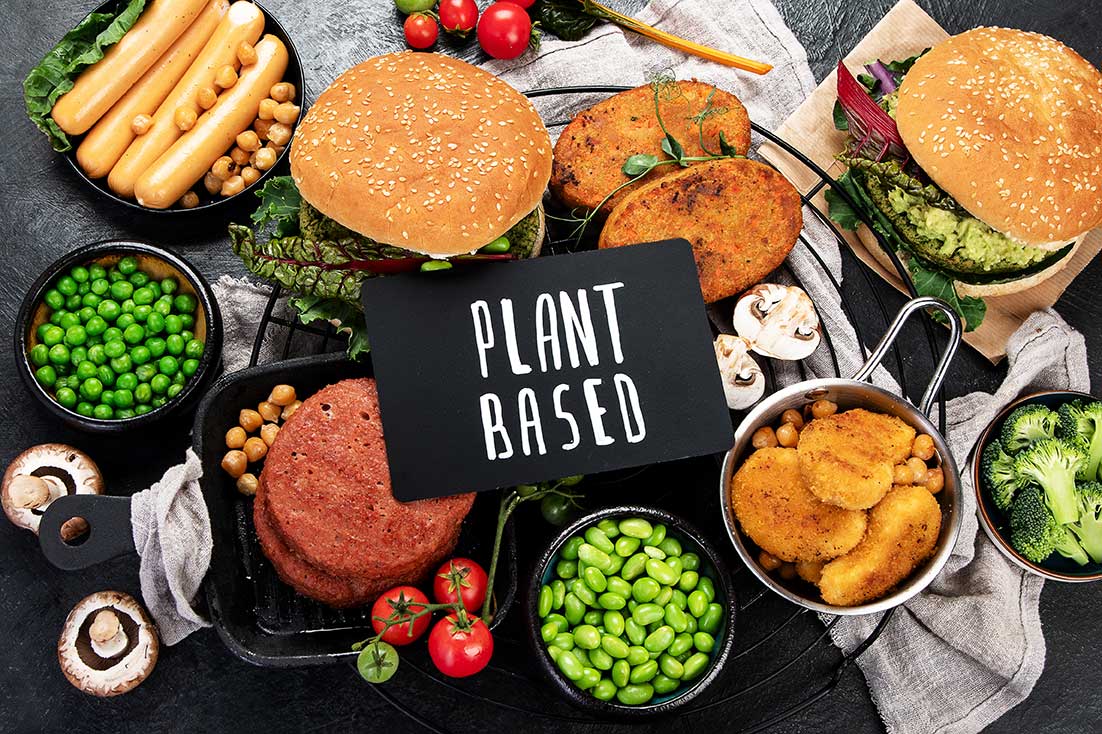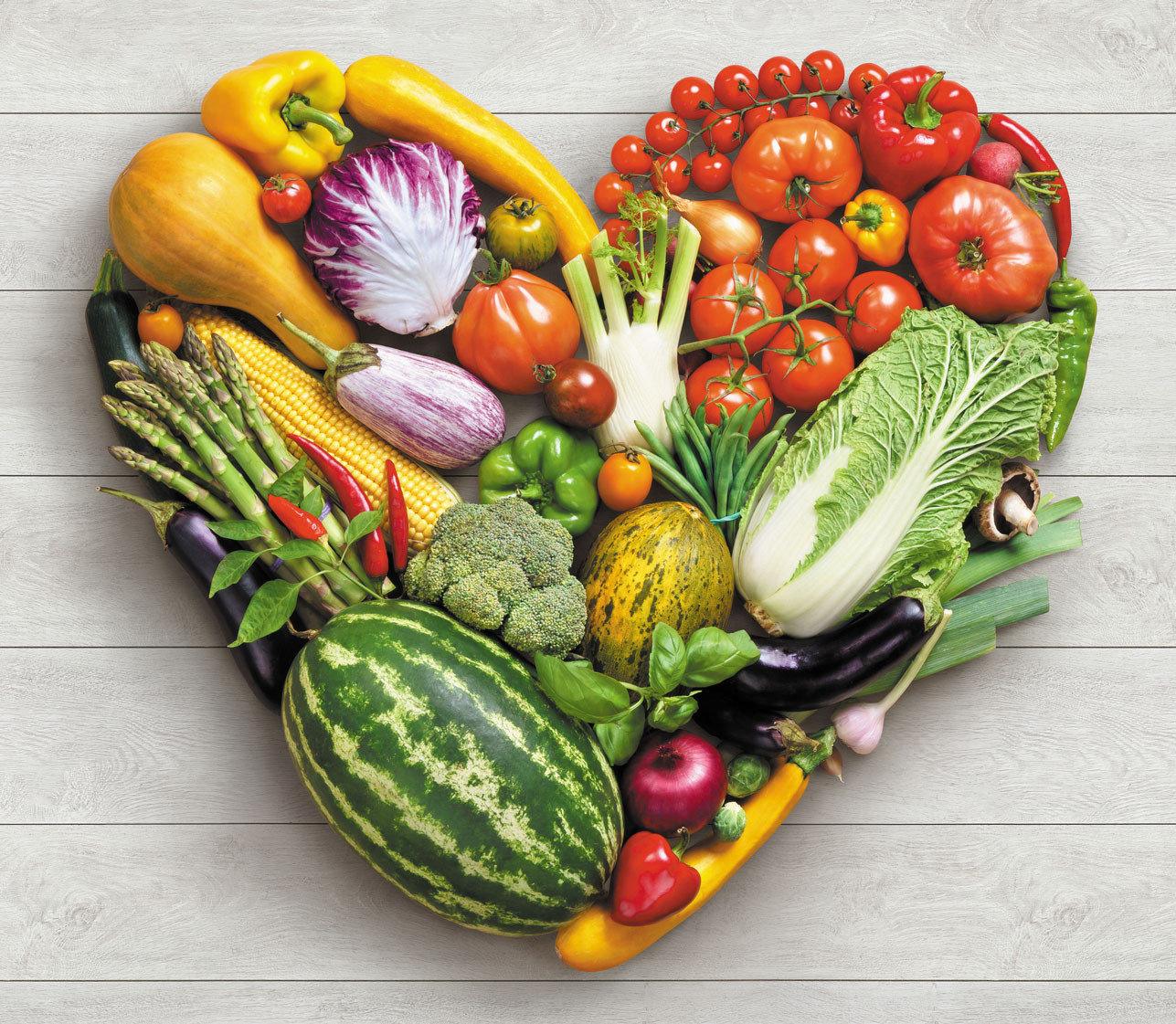Plant Based Chicken Meal Prep Ideas for Busy Professionals
Plant Based Chicken Meal Prep Ideas for Busy Professionals
Blog Article
Everything About Healthy And Balanced Food: Advantages of Taking On Plant Based Alternatives
The conversation bordering plant-based diet regimens has actually obtained considerable interest recently. Several people are checking out the potential health and wellness advantages, nutritional advantages, and ecological effects connected with these dietary options. As individuals end up being more conscious of their food's influence on well-being and sustainability, inquiries occur regarding the functionalities of taking on such a lifestyle. What specific modifications can one expect, and just how might these options improve not only individual wellness however additionally the earth's future?
Understanding Plant-Based Diet Plans
Lots of people link plant-based diet plans mainly with vegetarianism or veganism, these diets can incorporate a large range of consuming patterns that prioritize entire, minimally processed plant foods. Such diet plans typically include fruits, veggies, whole grains, beans, seeds, and nuts, while removing or limiting pet items. This versatility enables individuals to customize their dietary options according to dietary demands and individual choices. Some may take on a mostly plant-based diet while still occasionally consuming meat or milk, commonly described as a flexitarian method. The emphasis continues to be on integrating even more plant foods, which can lead to a varied array of tastes and dishes. Understanding these different interpretations of plant-based eating is crucial for appreciating its ease of access and allure in modern food society.
Health And Wellness Perks of Plant-Based Foods
The health advantages of plant-based foods are significant, providing a nutrient density advantage that sustains general well-being. Study shows that these foods can boost heart health and wellness and play a crucial duty in reliable weight management. By including much more plant-based options, people may enhance their dietary options and promote long-lasting health and wellness.
Nutrient Thickness Benefit
Nutrient thickness plays a vital role in the wellness benefits of plant-based foods, making them a compelling option for those seeking a balanced diet plan. Plant-based foods, such as fruits, vegetables, vegetables, nuts, and entire grains, are often abundant in essential vitamins, minerals, and anti-oxidants while being reduced in calories. This high nutrient thickness permits people to consume fewer calories while still satisfying their dietary needs. In addition, these foods are loaded with nutritional fiber, promoting digestion wellness and aiding in weight administration. By integrating nutrient-dense plant-based options, customers can improve their total wellness, support their body immune systems, and minimize the threat of chronic conditions. Ultimately, the nutrient thickness of plant-based foods highlights their importance in a health-conscious way of life.
Heart Wellness Improvement

Weight Administration Support
Along with advertising heart wellness, a plant-based diet plan can considerably assist in weight administration. This nutritional strategy stresses whole foods such as fruits, vegetables, vegetables, nuts, and whole grains, which are generally reduced in calories and higher in fiber contrasted to animal-based items. The high fiber web content helps raise satiation, decreasing total calorie consumption. Plant-based diets are usually rich in necessary nutrients while low in harmful fats, making it less complicated to keep a healthy and balanced weight. Research study suggests that people that adopt a plant-based way of life tend to have lower body mass indexes (BMIs) and experience even more effective weight-loss compared to those that take in meat-heavy diet plans. Welcoming plant-based alternatives is a critical choice for effective weight administration.
Nutritional Worth of Plant-Based Ingredients
Plant-based components are rich in important nutrients, offering a varied variety of vitamins, minerals, and anti-oxidants that add to general health. A contrast of healthy protein resources discloses that while pet items are frequently deemed remarkable, numerous plant-based options offer adequate healthy protein and other beneficial compounds. Recognizing the dietary value of these ingredients can aid people make informed dietary selections.
Crucial Nutrients in Plants
Nutrient-rich components located in plants supply a diverse array of crucial nutrients that add considerably to total wellness. These active ingredients are rich in vitamins A, C, and K, which sustain immune function, vision, and blood clotting, specifically. In enhancement, plants supply essential minerals such as potassium, magnesium, and calcium, critical for heart health and wellness, muscle mass function, and bone strength. The visibility of fiber in plant-based foods help digestion and advertises a healthy intestine microbiome. Anti-oxidants, discovered abundantly in veggies and fruits, assistance battle oxidative anxiety and reduce inflammation. Several plant foods are low in calories yet high in nutrients, making them an exceptional choice for those looking for to keep a healthy and balanced weight while making certain excellent nutrient intake.

Contrasting Healthy Protein Resources
Protein sources differ substantially in their nutritional accounts, with plant-based components using distinct advantages. Unlike animal healthy proteins, which frequently contain hydrogenated fats and cholesterol, plant proteins often tend to be lower review in these unhealthy parts. Legumes, nuts, seeds, and entire grains are abundant in essential amino acids, fiber, vitamins, and minerals. Lentils provide high protein material alongside considerable iron and folate, while quinoa is a full healthy protein, supplying all nine necessary amino acids. Additionally, plant-based healthy proteins are usually accompanied by antioxidants and phytochemicals that sustain general health and wellness. The change to plant-based healthy protein sources not just boosts dietary intake but likewise straightens with sustainable dietary methods, reducing ecological effect and advertising long-term health and wellness advantages.
Ecological Effect of Plant-Based Consuming
As awareness of climate modification grows, several individuals are discovering lasting dietary choices that can significantly decrease their ecological footprint. Plant-based eating has actually become a substantial factor to lowering greenhouse gas exhausts, which are primarily related to livestock manufacturing. The growing of fruits, veggies, grains, and legumes generally calls for less resources, such as water and land, compared to pet farming. In addition, plant-based diet plans can bring about lowered deforestation, as much less land is required for grazing animals or expanding pet feed. By moving in the direction of plant-based alternatives, recommended you read customers can support biodiversity and advertise healthier ecosystems. On the whole, embracing plant-based eating not only advantages individual wellness but likewise represents a vital action toward ecological sustainability and preservation initiatives.
Overcoming Common Misconceptions
While lots of people acknowledge the advantages of a plant-based diet plan, a number of misunderstandings usually prevent them from completely accepting this lifestyle. A typical belief is that plant-based diets do not have sufficient protein; however, countless plant resources, such as beans, nuts, and tofu, supply adequate protein. In addition, some assume that this diet regimen is pricey, when in truth, staples like beans, rice, and seasonal vegetables can be quite inexpensive. Another misconception is that plant-based eating is excessively limiting, whereas it actually offers a varied range of foods and flavors. Many stress that a plant-based diet regimen may lead to deficiencies, yet with appropriate preparation, people can acquire all required nutrients, consisting of minerals and vitamins, while taking pleasure in a broad variety of tasty meals. Large Tips for Transitioning to a Plant-Based Way of life
Making the shift to a plant-based way of living can be an enriching experience, though it often calls for some support to navigate the first changes. Initially, people are motivated to begin slowly, integrating more fruits, vegetables, vegetables, and whole grains right into their dishes while reducing meat and dairy consumption. Meal planning is vital; preparing a weekly food selection can aid alleviate the modification and prevent final undesirable options. Exploring brand-new dishes and cooking approaches can likewise maintain and boost the experience excitement concerning plant-based consuming. Additionally, joining support system or areas can supply motivation and share useful pointers. Finally, remaining notified concerning nutrition guarantees well balanced meals, preventing deficiencies while cultivating a healthy and balanced, satisfying plant-based lifestyle.
Delicious Plant-Based Meal Ideas
Discovering scrumptious plant-based meal ideas can motivate individuals to embrace a much more healthy diet plan. One preferred alternative is a hearty quinoa salad, including cherry tomatoes, cucumber, and a tangy lemon-tahini dressing. Another favorite is a savory lentil stew, loaded with carrots, celery, and great smelling natural herbs, ideal for a comforting dinner. For morning meal, over night oats made with almond milk, chia seeds, and topped with fresh berries supply a nourishing start to the day. Furthermore, a vibrant veggie stir-fry with tofu and a selection of vibrant veggies can be a quick yet pleasing dish. Creamy avocado salute on whole-grain bread, sprinkled with flavors and seeds, uses a basic yet savory snack. These dishes showcase the variety and richness of plant-based eating.

Regularly Asked Inquiries
Can a Plant-Based Diet Plan Offer Enough Protein?
The question of whether a plant-based diet plan can provide adequate protein is typical. Various sources, consisting of beans, nuts, seeds, and whole grains, can satisfy protein requires efficiently, supporting a balanced click here to read and nourishing diet for people.
Are Plant-Based Diet Regimens Suitable for Children?
The suitability of plant-based diets for youngsters relies on mindful planning. Ample nutrients have to be guaranteed, including vitamins, proteins, and minerals. With correct support, such diets can sustain healthy development and advancement in kids.
Just how Do I Eat Out on a Plant-Based Diet?
Eating out on a plant-based diet regimen includes looking for restaurants with diverse food selections, requesting adjustments, and exploring vegan-friendly options. Preparation ahead and communicating nutritional choices can boost the eating experience while maintaining dietary selections.
What Prevail Irritants in Plant-Based Foods?
Typical allergens in plant-based foods include soy, gluten, nuts, and seeds - Gluten Free BBQ Sauce. People following a plant-based diet should know these irritants and review tags very carefully to prevent adverse reactions and assure safe intake
Can Plant-Based Diets Assist With Weight Management?
Research study indicates that taking on a plant-based diet regimen might promote weight management due to its generally reduced calorie density and greater fiber web content. This mix can enhance satiation, helping individuals manage their calorie intake effectively. Several people associate plant-based diet plans mostly with vegetarianism or veganism, these diet regimens can incorporate a wide array of eating patterns that focus on whole, minimally refined plant foods. Nutrient thickness plays a crucial function in the health and wellness benefits of plant-based foods, making them an engaging selection for those seeking a well balanced diet regimen. Plant-based diet plans have actually been shown to markedly boost heart health and wellness, as they frequently have components that support cardiovascular feature. In addition to promoting heart health and wellness, a plant-based diet can considerably assist in weight monitoring. A typical belief is that plant-based diet regimens do not have adequate healthy protein; however, many plant resources, such as vegetables, nuts, and tofu, offer sufficient healthy protein.
Report this page